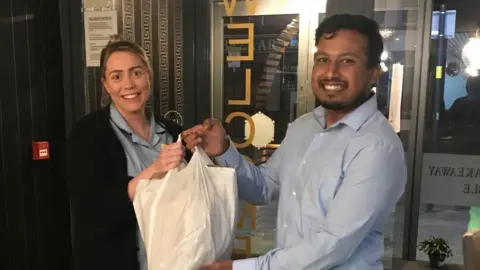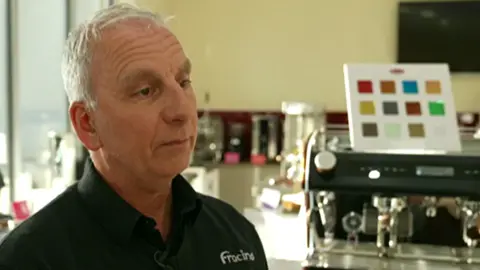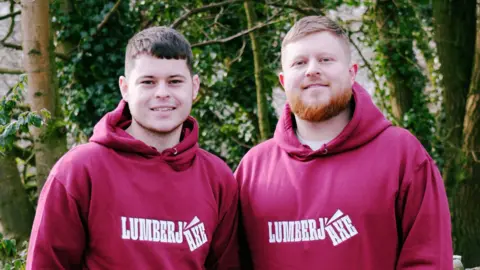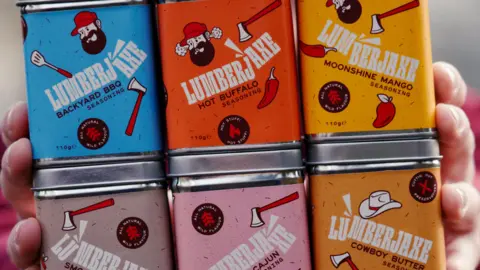'We managed to survive and adapt to the pandemic'
 BBC
BBCGrabbing a coffee or going out for a meal are part of people's daily lives, but it was a different story five years ago.
The first Covid lockdown saw the closure of restaurants, manufacturers and distributors.
Without customers to serve, many food and drink businesses in Birmingham struggled to make ends meet.
Indian restaurant Patiala opened a year before the pandemic and there were already questions about whether it would survive.
If it had not been for the government's Eat Out to Help Out scheme, owner and manager Kiswar Hussain thinks things could have taken a turn for the worse.
Despite his concerns, Mr Hussain still dished out more than 1,000 free meals to key workers during lockdown.
 Kiswar Hussain
Kiswar HussainIt is something he said he would do again, even though Patiala is currently barely breaking even: "Because of the cost of living, the food prices have gone really high.
"It's very hard to make a margin at the moment."
To try and boost sales, he has been thinking of new ways to spruce up the Stirchley-based restaurant, such as regularly changing the menu and offering free meals to children.
Someone else looking at new tactics is Adrian Maxwell, the managing director of coffee machine manufacturer Fracino.

Lockdown was "decimating" for Mr Maxwell's business, with no orders coming in and everything grinding to a halt.
"My main concern was what we were going to do with the staff," he said.
"When we got the furlough announcement from the government, it was a massive relief."
While Fracino managed to survive the pandemic, the Birmingham-based company has not seen any growth since.
"We've noticed a decline. We're probably 15 to 20% down on where we were, and we're trying to hold our own, but it's very erratic at the moment," Mr Maxwell said.
He is hoping that looking at new machine models and investing in adjacent products will turn things around.
 Lumberjaxe Food Company
Lumberjaxe Food CompanyWhile Covid has posed difficulties for many businesses, some have been able to use it to their advantage.
Brothers Brendon and Jaydon Manders were on a lockdown walk in Quinton in 2020 when they came up with their BBQ seasonings and sauces brand, Lumberjaxe.
Since then, the Halesowen-based business has made a £90,000 deal on Dragons' Den with British entrepreneur Emma Grede.
But both of them believe setting the company up during Covid was key to their success.
"Everyone was buying barbecues because they were forced in their gardens, so there was this whole cult community online," Jaydon said.
When everything started slowly opening up again, outdoor food festivals helped the business get more exposure.
 Lumberjaxe Food Company
Lumberjaxe Food CompanyBrendon thinks having to follow Covid guidelines was a blessing in disguise: "We're used to adapting, changing and, if something happens, reacting to it.
"It's given us a great foundation for how we run the business today."
Looking back on their journey, the brothers would not go as far as to say they are grateful for the pandemic, but they recognise how it played a part in their survival.
"It's almost like the universe has set something up for us here," Jaydon added.
Follow BBC Birmingham on BBC Sounds, Facebook, X and Instagram.
